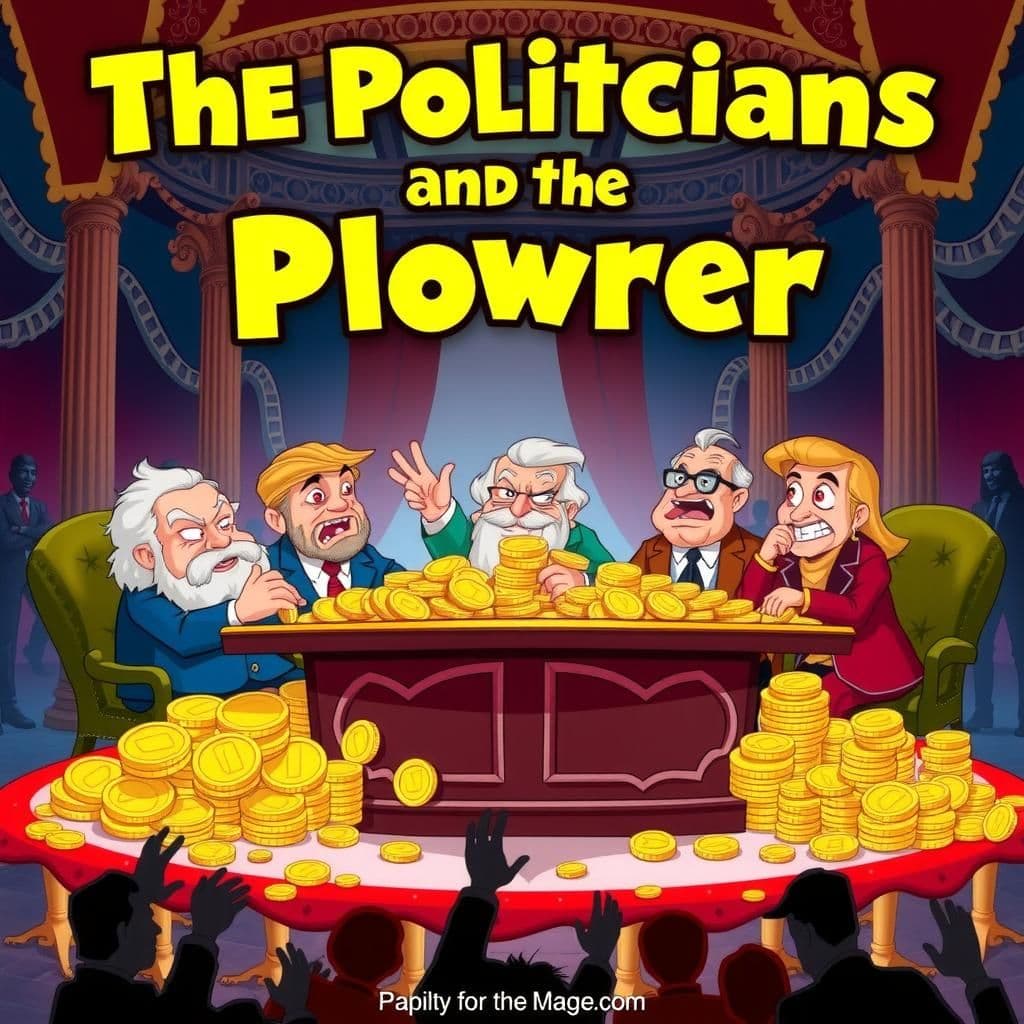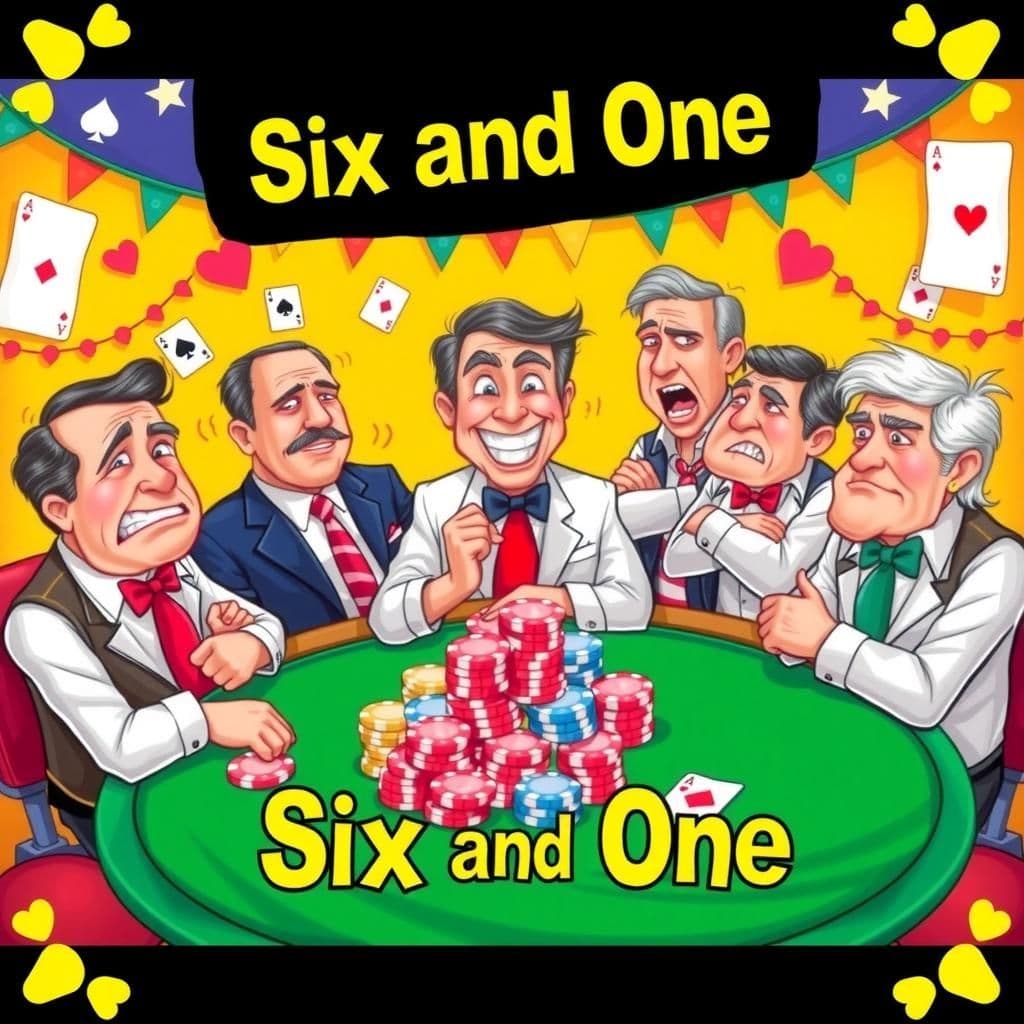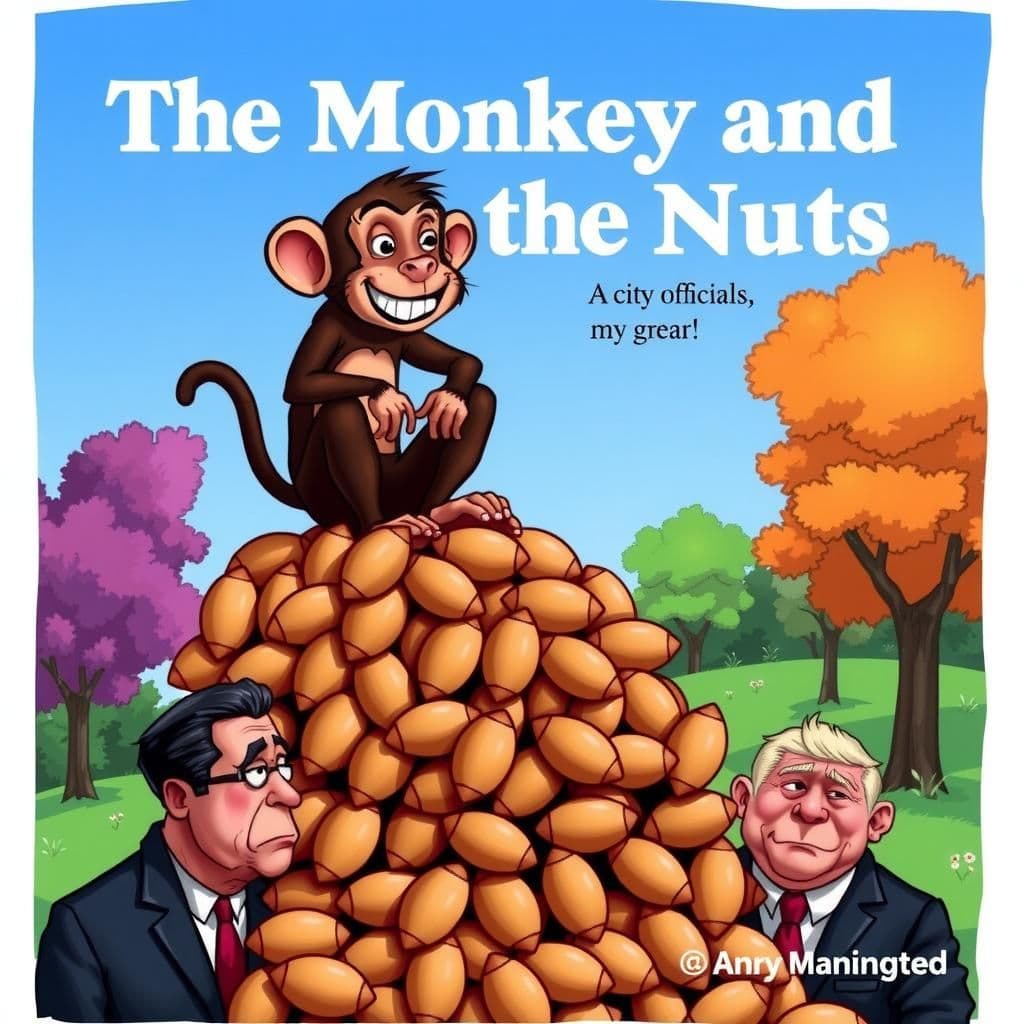The Politicians and the Plunder
In "The Politicians and the Plunder," a fable story with moral undertones, various political figures negotiate their roles in dividing power and resources, each embodying different facets of corruption and governance. The Decent Respect for Public Opinion seeks to reform prison management, while the Blotted Escutcheon and Soiled Ermine cling to their judicial ties, yet ultimately, the Cohesive Power of Public Plunder reveals that the true spoils have already been claimed by the Depth of Degradation, illustrating the pervasive moral decay in politics. This creative moral story serves as a cautionary tale about the corrupting influence of power.

Reveal Moral
"The story illustrates how political corruption and self-interest often lead to the exploitation of public resources for personal gain, highlighting the degradation of public trust and integrity in governance."
You May Also Like

Six and One
In "Six and One," a Committee on Gerrymander, consisting of six Republicans and one Democrat, loses a poker game, leading to the Democrat winning all the money. The next day, a disgruntled Republican accuses the Democrat of cheating, claiming that disasters always occur when the minority is dealing, suggesting the cards were manipulated. This short and sweet moral story highlights the absurdity of blame and the lessons of fairness, making it a heartwarming tale for kids about integrity and accountability.

The Dog and His Reflection
In the thought-provoking moral story "The Dog and His Reflection," a State Official, while stealing the Dome of the Capitol, encounters the ghost of his predecessor at midnight, who warns him that God is watching. As they converse, another State Official quietly seizes the opportunity to add the dome to his own collection, illustrating the themes of greed and moral consequence found in many well-known moral stories. This short moral tale serves as a reminder of the unseen consequences of one's actions.

The Monkey and the Nuts
In "The Monkey and the Nuts," a certain city seeks to purchase land for a public deformatory but becomes entangled in greed as officials continually request more funds from the government. Their relentless demands lead to frustration, prompting the government to withdraw support entirely, leaving the officials empty-handed. This timeless moral story serves as an inspirational reminder of the consequences of greed and the limits of generosity, illustrating important lessons from moral stories that resonate across cultures.
Quick Facts
- Age Group
- adult
- Theme
- corruptionpower struggleexploitation
- Characters
- Decent Respect for Public OpinionBlotted EscutcheonSoiled ErminePolitical PotFilthy PoolCohesive Power of Public PlunderDepth of Degradation
Subscribe to Daily Stories
Get a new moral story in your inbox every day.